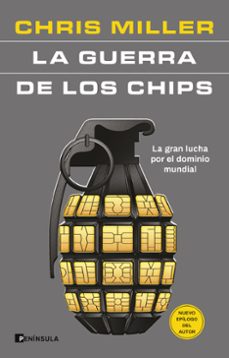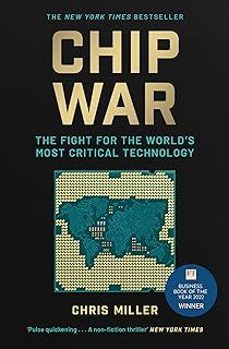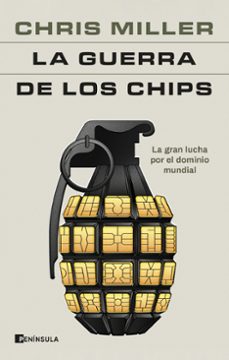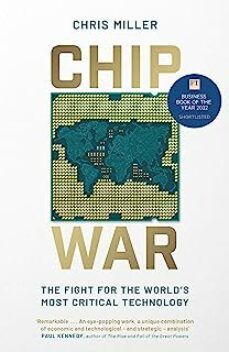Imprescindibles
Más vendidos Libros más leídos eBooks más leídos Todos los libros Todos los libros Autores destacados Series y sagas
Recomendados Libros recomendados Autores destacados Libros que inspiran Vidas con historia LGTBIQ+ English books
Ficción
Literatura Contemporánea Estudios literarios Clásicos Cuentos Poesía Teatro Libros de bolsillo Sagas literarias
Géneros literarios Novela romántica y erótica Novela negra Novela histórica Narrativa fantástica Novela de ciencia ficción Novela de terror Narrativa de humor Narrativa de viajes
No Ficción
Ciencias y tecnología Biología Ciencias Ciencias naturales Divulgación científica Informática Ingeniería Matemáticas Medicina Salud y dietas Formación Idiomas Estilo de vida Libros de Cocina Guías de viaje Narrativa de viajes Deportes Libros de Juegos Manualidades
Humanidades Autoayuda y espiritualidad Ciencias humanas Derecho Economía y Empresa Psicología y Pedagogía Filosofía Sociología Filología Biblioteconomía Estudios filológicos Estudios lingüísticos Estudios literarios Historia y crítica de la Literatura
Infantil
Juvenil
#Jóvenes lectores Narrativa juvenil Clásicos adaptados Libros Wattpad Libros Booktok Libros de influencers Libros de Youtubers Libros Spicy Juveniles Libros LGTBIQ+ Temas sociales Libros ciencia ficción Libros de acción y aventura Cómic y Manga Juvenil Cómic Juvenil Manga Shonen Manga Shojo Autores destacados Jennifer L. Armentrout Eloy Moreno Nerea Llanes Hannah Nicole Maehrer
Libros de fantasía Cozy Fantasy Dark academia Hadas y Fae Romantasy Royal Fantasy Urban Fantasy Vampiros y hombres lobo Otros Misterio y terror Cozy mistery Policiaca Spooky Terror Thriller y suspense Otros
Libros románticos y de amor Dark Romance Clean Romance Cowboy Romance Mafia y amor Romance dramatico Romcom Sport Romance Otros Clichés Enemies to Lovers Friends to Lovers Hermanastros Slow Burn Fake Dating Triángulo amoroso
Cómic y Manga
Novela gráfica Novela gráfica americana Novela gráfica europea Novela gráfica de otros países Personajes, series y sagas Series y sagas Star Wars Superhéroes Cómics DC Cómics Marvel Cómics otros superhéroes Cómics Valiant
Books in English
Books in English Fiction Non Fiction Comic Teen & Young Adult Main Authors Ken Follett Agatha Christie Stephen King Jane Austen Maggie O’Farrell On sale
Books in English for Young Adults Age 13+ Age 15+ Young Adult Authors Rebecca Yarros Sarah J. Maas Brandon Sanderson Ali Hazelwood Alice Oseman
Audiolibros
Literatura Contemporánea Narrativa fantástica Novela de ciencia ficción Novela de terror Novela histórica Novela negra Novela romántica y erótica Historia Historia universal
Humanidades Autoayuda y espiritualidad Ciencias humanas Economía y empresa Psicología y pedagogía Filosofía Infantil Audiolibros infantiles
Ciencia y tecnología Ciencias naturales Divulgación científica Medicina Salud y dietas Arte Cine Música Historia del arte
eBooks
Literatura Contemporánea Narrativa fantástica Novela de ciencia ficción Novela de terror Novela histórica Novela negra Novela romántica y erótica Juvenil Más de 13 años Más de 15 años Infantil eBooks infantiles
Humanidades Autoayuda y espiritualidad Ciencias humanas Economía y Empresa Psicología y Pedagogía Filosofía Historia Historia de España Historia Universal Arte Cine Música Historia del arte
Ciencia y tecnología Ciencias naturales Divulgación científica Medicina Salud y dietas Filología Estudios lingüísticos Estudios literarios Historia y crítica de la Literatura Estilo de vida Cocina Guías de viaje Ocio y deportes
Chris Miller
Chris Miller es profesor de Historia Internacional en la Fletcher School de la Universidad de Tufts. Ejerce también de adjunto en el American Enterprise Institute y es director de investigación sobre Eurasia del Foreign Policy Research Institute. Aparece en canales como la CNBC o la NPR y escribe para publicaciones como Foreign Affairs y Foreign Policy. Tiene un doctorado y un máster por la Universidad de Yale y se licenció en Historia por la Universidad de Harvard. Es autor de We Shall Be Masters: Russian Pivots to East Asia from Peter the Great to Putin, The Struggle to Save the Soviet Economy: Mikhail Gorbachev and the Collapse of the USSR y Putinomics: Power and Money in Resurgent Russia.
Recibe novedades de Chris Miller directamente en tu email
Filtros
Del 1 al 7 de 7
Ediciones Península 9788411004503
Una edición actualizada del libro que analiza el mayor conflicto geopolítico actual: la lucha por los microprocesadores Todas las tecnologías actuales, de los misiles a los microondas, de los smartph
Ver más
Tapa blanda
SIMON & SCHUSTER 9781398504127
Winner of the Financial Times Business Book of the Year award******Selected as one of Barack Obama's Favourite Books of 2023***'Pulse quickening. A nonfiction thriller - equal parts The China Syndrome and Mission Impossible' New York Times An epic account of the decades-long battle to control the world's most critical resourcemicrochip technologyPower in the modern world - military, economic, geopolitical - is built on a foundation of computer chips. America has maintained its lead as a superpower because it has dominated advances in computer chips and all the technology that chips have enabled. (Virtually everything runs on chips: cars, phones, the stock market, even the electric grid.) Now that edge is in danger of slipping, undermined by the naive assumption that globalising the chip industry and letting players in Taiwan, Korea and Europe take over manufacturing serves America's interests. Currently, as Chip War reveals, China, which spends more on chips than any other product, is pouring billions into a chip-building Manhattan Project to catch up to the US.
Ver más
Tapa blanda
Ediciones Península 9788411001984
PREMIO BUSINESS BOOK OF THE YEAR DEL FINANCIAL TIMES MEJOR LIBRO DEL AÑO SEGÚN THE ECONOMIST BEST SELLER DE THE NEW YORK TIMES El libro del año. Define el fin de la era de la globalización y explica
Ver más
Tapa blanda
SBP 9781625168047
You probably dont remember me, but I know a lot about you. I saw the look you shot in our direction. You saw her tattoos and frowned. You heard him talking and snickered. You gave me the once-over and made a decision about my character. By the time you have read this far, perhaps your opinion of truck drivers will have changed. Maybe you will feel bad and wish you had handled it better when you had the chance. Maybe you will regret missing the opportunity to meet some very fine people. Maybe next time it will make a different memory for us both.
Ver más
eBook
SIMON & SCHUSTER 9781398504097
Winner of the 2022 Financial Times Business Book of the Year Award***'Pulse quickening. A nonfiction thriller - equal parts The China Syndrome and Mission Impossible' New York Times An epic account of the decades-long battle to control the world's most critical resourcemicrochip technologyPower in the modern world - military, economic, geopolitical - is built on a foundation of computer chips. America has maintained its lead as a superpower because it has dominated advances in computer chips and all the technology that chips have enabled. (Virtually everything runs on chips: cars, phones, the stock market, even the electric grid.) Now that edge is in danger of slipping, undermined by the naive assumption that globalising the chip industry and letting players in Taiwan, Korea and Europe take over manufacturing serves America's interests. Currently, as Chip War reveals, China, which spends more on chips than any other product, is pouring billions into a chip-building Manhattan Project to catch up to the US.
Ver más
Tapa dura
PEARSON EDUCACION 9788420529707
Sistemas OperativosCon esta guía obtendrá las habilidades y los conocimientos necesarios para descubrir la potencia de Microsoft Windows 2000 Server.
Ver más
Tapa blanda
Del 1 al 7 de 7































